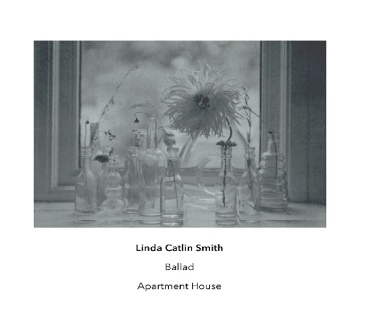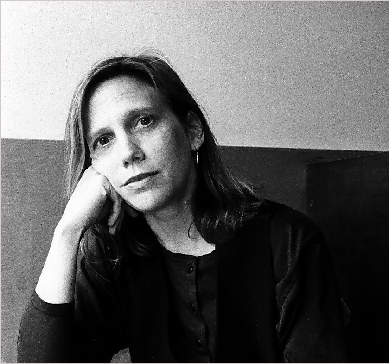Another Timbre TimHarrisonbre

at174 Linda Catlin Smith ‘Ballad’
Two pieces for cello and piano played by Apartment House:
Anton Lukoszevieze (cello) Kerry Yong (piano)
1. Through the Low Hills (1994) 9:45
2. Ballad (2005) 46:15 youtube extract
Interview: Rose Dodd talks to Linda Catlin Smith
You have said that your intention in your work is to be left to go your own way, ‘I compose my identity, through my life and my work.’ Could you say a little more about this?
I’ve always wanted to do things my own way; I was very stubborn as a child, I couldn’t wait to be grown up and live on my own, and make my own decisions. I have to figure things out for myself, so that they make sense to me. Sometimes I felt an internal pressure that the world might be expecting me to conform to some standard, as a composer. It was more or less my own internal battle with the sense of how one should be, or how one should think, or how one should make music. I prefer to think there is no ‘should’.
You have talked in the past about the freedom you feel you and fellow Canadians enjoy, to explore music unfettered by expectations. How has the scene changed in recent years do you think?
There is a real burgeoning of creativity in Canada. There are so many composers doing incredibly interesting and individual kinds of work. Being “unfettered by expectations”, refers to the fact that Canadian work has been largely ignored elsewhere, allowing for a certain freedom from examination. And Canadians are literally far apart from each other – it’s a vast country – so there is a kind of ‘working in the distance’ quality to all of us.
The title Through the Low Hills is attributed to Cormac McCarthy’s novel The Crossing. What about these words drew you in, and how did the composition process evolve with these in mind?
The composition process had nothing to do with the title - I only came across the phrase after I’d finished composing the piece. The words popped out at me when I was reading the novel, and seemed to resonate with the piece in terms of its short phrases, and its contours.
To me the way material in through the low hills is explored and shared between the cello and the piano, the unfolding across the span of the work has an elemental pibroch vibe. This is entirely a personal reading, I am aware. The placing of instruments in relation to each other, their voicings and shifting relationship to each other is elemental in constructing material, dancing around what I feel to be a very loose interpretation of a pibroch as fundament. Was this happenstance, or more intentionally designed?
I don’t have any particular relationship with pibroch music, though I do love it. I think of the two instruments as a balancing act between similarity and difference – where do they meet, where are they in their own world…as well as things like which one is foreground, and which background, or do they meet in a middle ground perhaps…?
You write your music by ear, in an intensive and responsive mode of working with the immediacy of material to hand in an uncompromising, yet reflective and intuitive process. At what stage does a piece of work truly begin to take shape for you, to gain its character?
This is such an elusive thing, isn’t it? It varies from piece to piece, but I can certainly say a work’s character is not evident early on, but usually emerges when I have quite a bit of material, and then it begins to suggest what it might become. I often feel it’s like the slowly-developing photograph – first there is nothing, then there is a vague outline or shadow, and eventually more details surface and it starts to clarify into something more defined.
Through the Low Hills and Ballad make an exquisite pairing as both enrichen and inform the listening experience of each other’s interior landscape. In both works, I hear the understated link between cello and piano, though loose and free as being simultaneously as irrefutable as steel. Delicacy underpinned through strength, and commitment to the conversation. Do you see these two works as cut from similar cloth?
One similarity is that both pieces were composed for my brother, Andy Smith, a classical cellist. And while both pieces are instrumentally cut from the same cloth, there is something inherently different about them, in terms of approach, and form. In Ballad (45 minutes in duration) I was extending myself into a longer work; I wanted to make a work that could be the entire concert, that could unfold over a longer time. With Through the Low Hills (10 minutes), I was working with a very restricted vocabulary in a process of constrained variation, working and re-working just a few elements. I felt like I had an object in my hands and was turning it over and over, looking at it from different angles. With Ballad, it felt more like a journey where I was discovering unfamiliar terrains.
Ballad offers a sense of increased and free-er material expression, made possible by increased time span within which to work these things out. The cumulation of this working out in the last section staring at the river is surprisingly formal in quality, arriving brilliantly from elsewhere. Was this a surprise, or did you know it was coming all along?
It was a surprise…like something new appeared just around the bend. In general, I never really know what’s coming in my works…I don’t plan things, I discover them.
The range of music during your formative education was expansive; Kondo, gagaku, Webern, Feldman and early Cage, so you are unfazed creating new works with unusual instrumental combinations, seeing inherent possibility. Do you know your relationship to each instrument as you set out in the writing of a new work, or does this emerge over time in its creative unfolding?
My relationship to each instrument is always changing; I get new insights every time. Recently I’ve written a few pieces for string trio – a marvellous instrumental form - so I’ve been figuring out how I want to hear that. If I’m writing a work for an instrument I don’t know very well (the accordion, or the hurdy-gurdy, are recent examples) I spend quite a bit of time with the musician, asking questions, and having them play for me, to get the sound of the instrument in my ears. And I listen to a lot of repertoire. Usually I’m looking for a particular sound, or quality of sound, that speaks to me – that’s usually the doorway into the world of the work.
